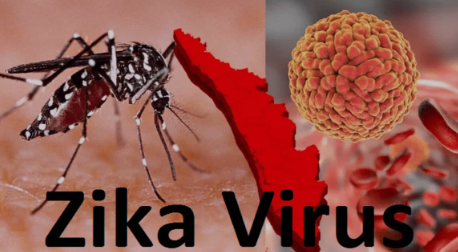Pune: In a continued effort to curb the spread of the Zika virus, the Pune Municipal Corporation (PMC) has sent an additional 12 blood samples from pregnant women to the National Institute of Virology (NIV) for testing on Thursday. This brings the total number of samples sent for testing to 31. According to civic officials, the samples are from three areas: nine from Erandwane, 14 from Mundhwa, and eight from Dahanukar Colony.
A total of 49 pregnant women have been identified in the affected regions. Given that Zika infection in pregnant women can lead to microcephaly in the foetus, the PMC is prioritising the testing of expecting mothers. For the general population, Zika symptoms tend to be mild, but the risk to unborn children is significant. To date, the PMC has screened 7,109 homes, uncovering 224 sites with mosquito breeding grounds. Vigilance remains high as the city monitors the situation closely. According to civic records, no new Zika cases were reported in the city on Thursday. The current tally stands at six confirmed cases and two suspected cases. Of the confirmed cases, two involve pregnant women. Notably, an anomaly scan of one pregnant woman revealed that her foetus is healthy, providing some relief amid the ongoing health scare.
The PMC’s proactive approach aligns with directives from the central government, which recently urged states to maintain constant vigilance over the Zika situation. The advisories come amid reports of the virus spreading in Maharashtra, prompting heightened surveillance and preventive measures. The focus on pregnant women underscores the potential severity of Zika-related complications during pregnancy. Microcephaly, a condition where babies are born with significantly smaller heads, can lead to various developmental issues. Hence, the civic body’s intensified focus on this demographic aims to prevent such outcomes through early detection and intervention.
Public health officials emphasise the importance of eliminating mosquito breeding sites as a primary preventive measure. Residents are encouraged to ensure there are no stagnant water sources in their vicinity, as these can become breeding grounds for mosquitoes that transmit the Zika virus. The PMC’s comprehensive approach involves both immediate actions and long-term strategies to manage and mitigate the spread of the virus. This includes ongoing screening, public awareness campaigns, and collaboration with state and national health agencies. As the situation develops, residents of Pune are advised to stay informed and adhere to guidelines issued by health authorities. Pregnant women, in particular, are encouraged to undergo testing and follow medical advice to safeguard their health and that of their unborn children. The PMC’s diligent efforts highlight the critical importance of surveillance and preventive measures in managing the Zika virus threat. By focusing on high-risk groups and maintaining rigorous monitoring, Pune aims to effectively control the spread of the virus and protect its citizens.


